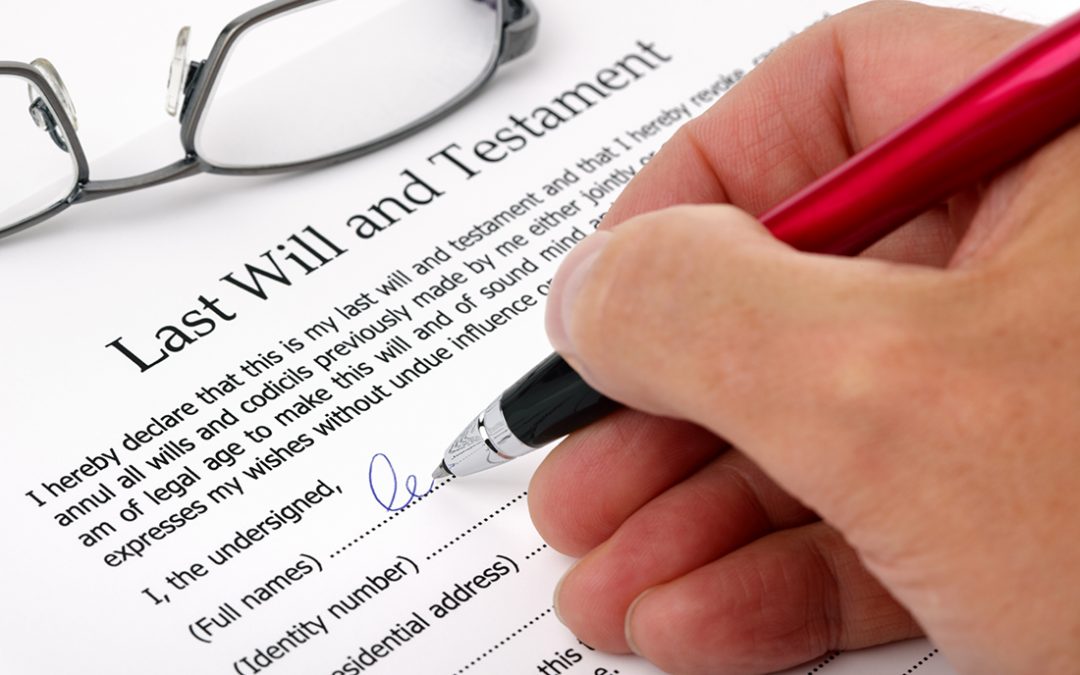The early part of the year always begins with good intentions. People crowd the gym with plans for getting healthy, clean out closets, put money aside for their savings accounts and more. One thing people often overlook, however, is getting their Last Will and Testament in order. And, then, as things get busy throughout the year, the will remains on the back burner. We’re not going anywhere, right?
But unfortunately, sometimes the worst happens when we least expect it and not having a will in place creates problems that can impact generations to come.
Preparing a will empowers you to make decisions about the future and frees your family from added stress during a difficult time.
Why is a will important?
Here are the top 10 benefits of having a carefully crafted will that fully reflects your desires:
- It will allow you to appoint a guardian for your minor children. This important decision should be made by you. Take it seriously and talk to the intended guardian about the selection in advance.
- It distributes your estate the way you want it to be distributed. Often folks say, “I don’t have anything” when in fact, they have a car or Uncle Billy’s stuffed alligator. Those things need to go somewhere. Having a will allows you – not the state – to decide where they go and to whom.
- You can minimize the taxes on your estate. When your will directs who receives what from your estate, there is potential to minimize the taxes assessed on the estate. Family members or charitable organizations receive a different tax rate, depending on the amount bequeathed.
- A will avoids long probate and the associated costs. When a will is present, the court can efficiently move the process along. If there is no will, the state becomes involved in the proceedings, greatly delaying decisions on the best result for settlement.
- You can choose to disinherit people. There may be reasons that you do not wish certain people to receive any benefit from your estate. Stating that clearly in a will disallows any question of your intention. It decreases the potential for litigation against the estate. For example, let’s say your heirs were awarded a large sum of money due to your untimely death by accident. Then, your mother, who you have had no contact with for 40 years shows up to collect her share. If you have not specifically disinherited her, she may have a legal claim as an heir.
- You name the executor. You get to name the person who will close out your final affairs. Having the point person established in your will ensures that someone you trust is acting in your and your loved ones’ best interests.
- It allows you to make gifts to others. Listing gifts in a will ensures that the intended recipient avoids state and federal estate taxes up to certain dollar amounts. Check with your state regarding that particular dollar amount. Donations to charitable organizations are also quite common. Check local, state and federal regulations regarding how to accomplish this.
- A will can always be updated, according to what is going on in your life. Things change all the time and so can your will. Births, deaths, divorce, etc. will change the way you feel about the disbursement of your estate. The good news is that you can rewrite your will at any time while you are alive. Reviewing it annually is sound advice.
- It alleviates stress for your family. Loss is hard. And then adding the burden of handling an estate can become overwhelming. A will is your last loving touch for your family.
- A will forces you to review your entire estate. Working through a will writing helps you evaluate your current assets. You may discover that you want to do something with part of your property before you die. Maybe you want to pass on some oral history with significant pieces of furniture or photographs. Generations from now, those things could be important!
There are many ways to accomplish will writing. Your attorney can help you, AARP has some resources, and many local senior agencies will assist with location of services. But what if you are 30? Yes, you still should have a Will. You can write it yourself! Be sure to include a title, date, your wishes and your signature.
This article is not intended to be legal advice.

